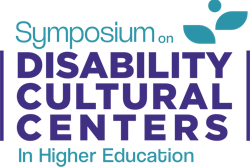 Marybeth Gasman
Marybeth GasmanOne of the fundamental responsibilites of higher education is to provide open and equal opportunities for students to learn, succeed, and positively contribute to their local, national, and global societies. Great strides are being made in increasing educational access, retention completion, and success, yet there is still work to be done particularly for students from disadvantaged or marginalized groups.
Unprecedented shifts in migration patterns are causing demographic changes around the world. In addition, governments, societies, and higher education institutions are increasingly recognizing the need and responsibility to create legal and institutional frameworks for providing more and better opportunities for people from historically marginalized groups to gain access and achieve success at the university level.
In the United States, minority-serving institutions (MSIs), including historically Black colleges and universities, tribal colleges and universities, Hispanic-serving institutions, and Asian American & Pacific Islander serving institutions, are a firmly established and important part of the educational landscape. But in the United States, we know little about MSIs across the globe.
South Africa’s historically disadvantaged institutions are folded into the larger higher education system but they have not received equitable funding and are considered sub-par by many in the country. Universities Australia is a consortium of universities that advocates for, among other things, addressing issues of indigenous disadvantage in Australia. As part of its effort to shift access to higher education from elitism to universalism, the Chinese government has established higher education institutions for specific ethnic minorities and introduced preferential policies giving ethnic minorities “bonus points” in the entrance exams that determine which higher education institutions students can attend.
Brazilian legislators recently passed the “Law of Social Quotas” for the nation’s public universities requiring all 59 public universities in the country to reserve half of all new entries for students from Brazilian public schools (where the majority of students are of African descent) and reserve half of these spots (i.e., 25% of the total) for people of indigenous ancestry in numbers representative of their relative populations within each state.
From October 11-16, the Penn Center on Minority Serving Institions is co-sponsoring the first international gathering on MSIs throughout the world with Educational Testing Service, The Kresge Foundation, and Salzburg Global Seminar. Through the seminar, we are bringing together scholars, practitioners, funders, policymakers, students and activists to discuss and act in favor of MSIs across the globe and the students that they serve.
The goals of the seminar include:
- Creating a global network of individuals and institutions interested in understanding the unique challenges and opportunities for minority-serving institutions (MSIs).
- Developing a database for MSIs across the globe, so these institutions can have a common reference point for generating and sharing knowledge and research ideas.
- Finding strategies that have been successful for MSIs around the world and looking for ways these best practices can be replicated.
- Examining the effect on higher education of unprecedented shifts in patterns of immigration and migration that are making countries much more diverse in terms of race, ethnicity, and religion.
The more individuals that we engage globally around the empowerment of students of color the better their lives will be.
Marybeth Gasman is professor of higher education in the Graduate School of Education at the University of Pennsylvania and also directs the Penn Center for Minority Serving Institutions. Andrés Castro Samayoa is a Ph.D. student in the Graduate School of Education at Penn and is a research assistant at the Penn Center for MSIs. You can follow the work taking place during the seminar on Facebook and Twitter. #SalzburgMSI















